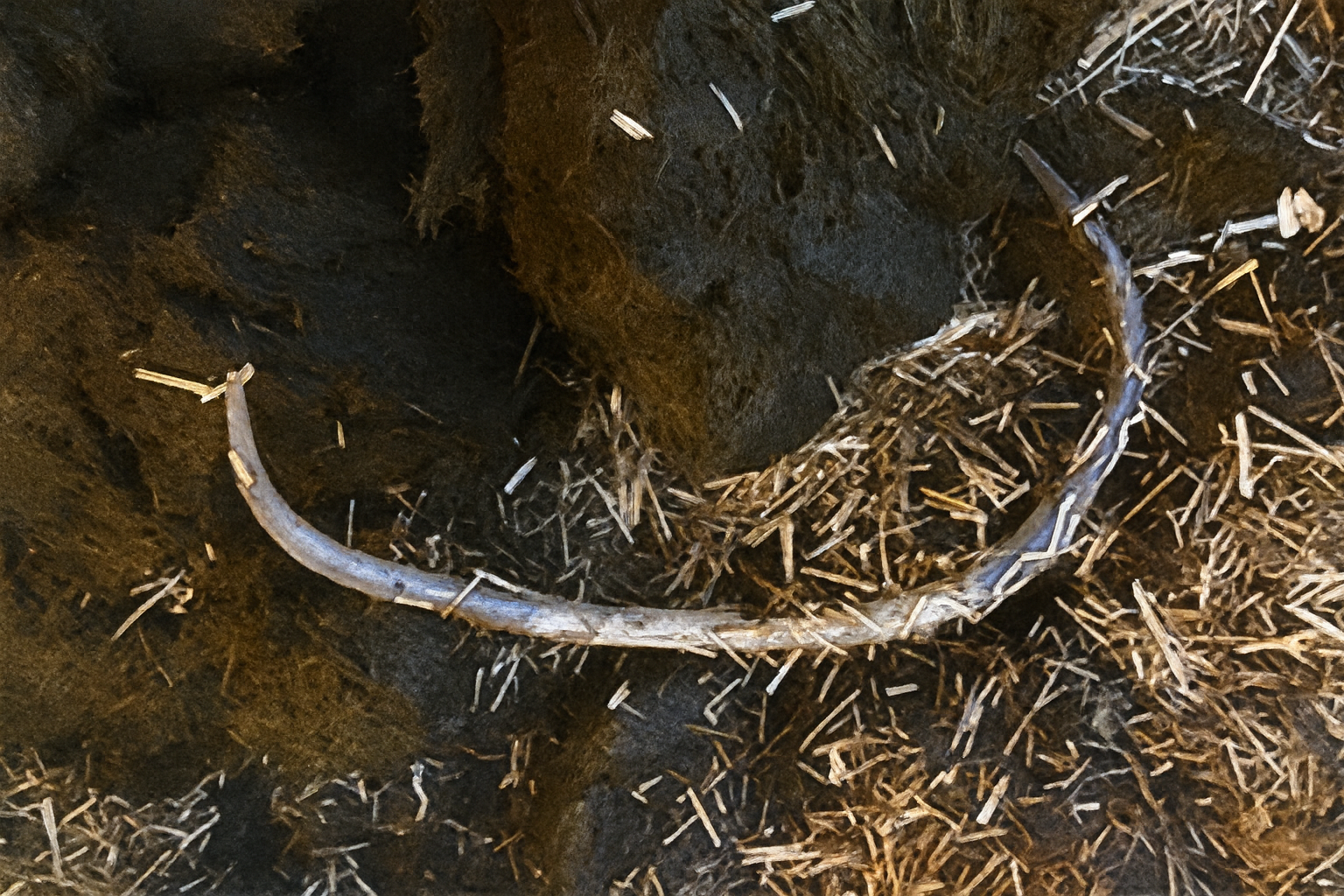The roundworm is a highly fertile parasite. A single female can lay up to 200,000 eggs per day, which are excreted onto pastures via manure. Roundworm eggs are surrounded by three protective layers, making them resistant to dryness, temperature changes, and chemicals. They can remain infectious for up to 10 years. Because these eggs survive so well outside the horse, any pasture previously grazed by horses can be considered contaminated. However, infection is most commonly transmitted between foals of different age groups. In poor hygiene conditions, serious infections can also occur in stables.
Roundworm eggs, often already containing a larva, can be ingested year-round. Once the egg reaches the intestine, the larva hatches and penetrates the intestinal wall, entering the liver. After passing through the liver, the larvae travel via the bloodstream to the lungs. Depending on the number of larvae, this can lead to severe pneumonia. Keep in mind: if pneumonia is suspected to be caused by a roundworm infection, no roundworm eggs will be found in the manure, as adult worms have not yet established themselves in the intestines at this stage.
From the lungs, the larvae are coughed up via the trachea and swallowed again. Upon returning to the small intestine, the final molt occurs, and the larva matures into an adult worm. A large number of adult worms can cause a (partial) blockage of the small intestine. In this phase, many eggs are found in the manure. Horses develop resistance to roundworms quickly, which is why infections are rare in horses older than 2 years. This infection mainly affects foals and yearlings.
Research conducted by the Faculty of Veterinary Medicine in Utrecht has shown that 63% of roundworms found in Dutch foals are resistant to ivermectin. This is the active ingredient in commonly used dewormers such as Eraqueel, Eqvalan, Noromectin, and Equimectin. It is extremely important to know whether your foals are dealing with ivermectin-resistant roundworms. We recommend performing a fecal test to determine this.
The control of roundworms mainly focuses on reducing the number of eggs passed through the manure of infected horses onto pastures, and on preventing damage caused by roundworms to the intestines, lungs, and liver. Most infections are seen in foals aged 4 months and older.
Check foals from the age of 4 months approximately every 2 months for the presence of roundworm eggs in the manure. If a fecal test is positive, deworming can be done using a product based on pyrantel or fenbendazole. Both products are only effective against adult, egg-laying worms and not against developing larvae.
If a fecal test shows your horse is infected with roundworms, we will provide you with a personalized treatment plan. This way, your horse’s health comes first and unnecessary deworming can be avoided. Please feel free to contact our team if you have any questions. Our enthusiastic team is happy to help you!
